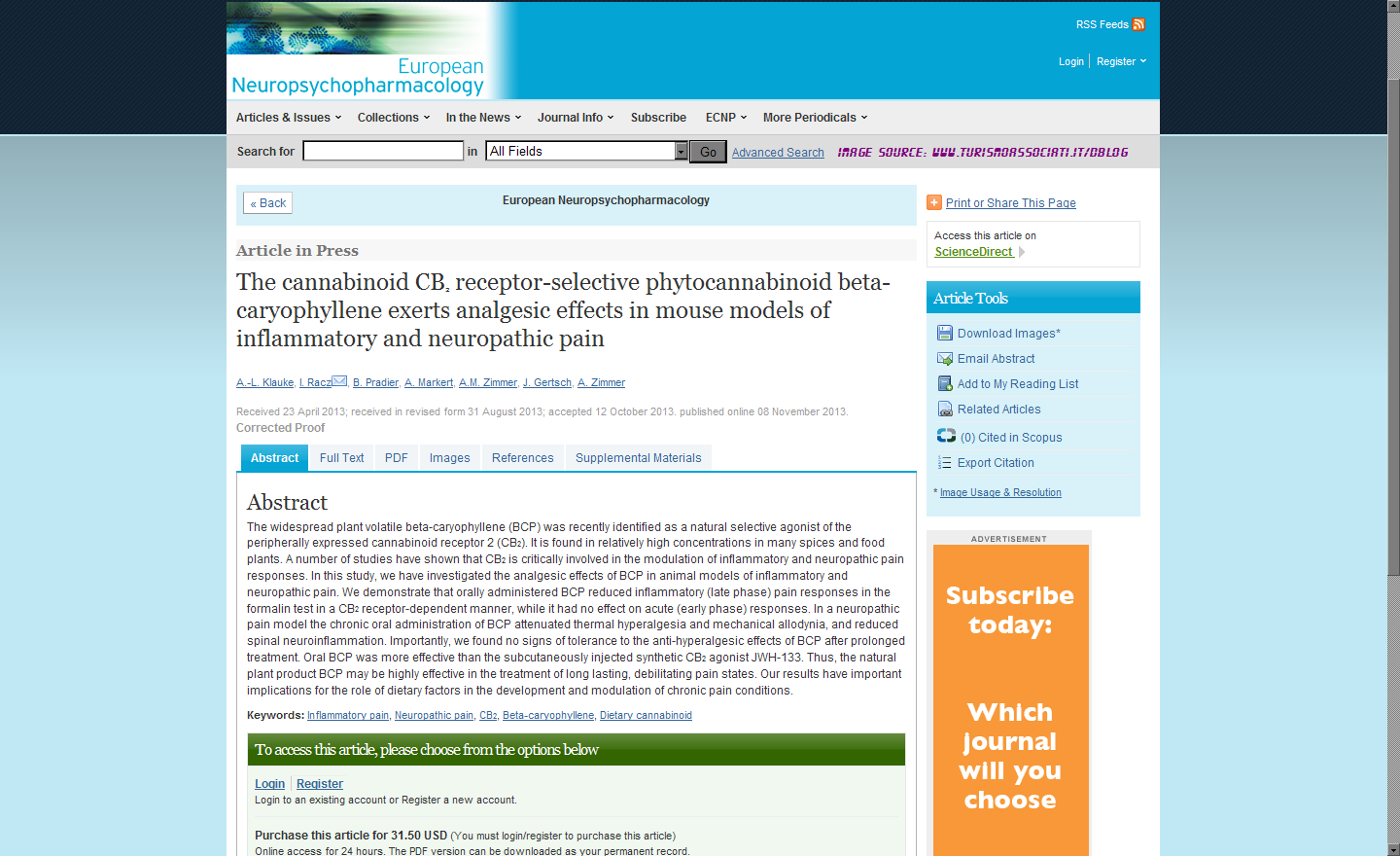The cannabinoid that could erase decades of work is beta-caryophyllene (BCP). BCP is found in the essential oils of a variety of plants, including rosemary, hops, cloves and, of course, cannabis. It's also highly present in black pepper.
While BCP was first synthesized in 1964, it wasn't until 2008 that a group of German and Swiss scientists, led by Andreas Zimmer, Ph.D and Ildiko Racz, Ph.D of the University of Bonn, discovered that BCP is a cannabinoid.
And not just any cannabinoid, but one that acts specifically on the body's CB2 cannabinoid pathways. On the other hand, the pathways responsible for the marijuana high, CB1 receptors, aren't affected by BCP. Writing in the journal Proceedings of the National Academy of Sciences (PNAS), they summarized:
"Here, we report that the widespread plant volatile â-caryophyllene (BCP) selectively binds to the CB2 receptor and that it is a functional CB2 agonist. Intriguingly, BCP is a common constituent of the essential oils of numerous spice and food plants and a major component in Cannabis."
Interestingly, scientists have been trying to develop a viable synthetic cannabinoid that targets only CB2 receptors for a very long time.
Many now exist, and research has shown the promise of CB2-selective cannabinoids in combating many inflammatory disorders, ranging from arthritis and bladder cystitis to multiple sclerosis and HIV-associated dementia. And all without the marijuana high.

But Dr. Racz and Dr. Zimmer's latest study, published last month in the journal European Neuropsychopharmacology, shows that BCP produces similar anti-inflammatory effects. Although the study was only done in mice, they found that BCP given orally was more effective than injections of the synthetic CB2 cannabinoid JWH-133.
This, they note, suggests that BCP could indeed be a superior medicine than synthetics. Not to mention, it's widely available as a food.
"It is likely that BCP belongs to a group of common plant natural products with major potential impact on human health. The oral intake of this dietary cannabinoid with vegetable food could be advantageous in the daily routine clinical practice over synthetic cannabinoid agonists."
Unfortunately, although still in its early stages, the discovery of BCP and its potential to eliminate synthetics sets a dangerous precedent. Frankly speaking, modern medicine isn't too friendly with the idea of plants replacing pills. And medical marijuana makes for a great example.
Source: LeafScience.com